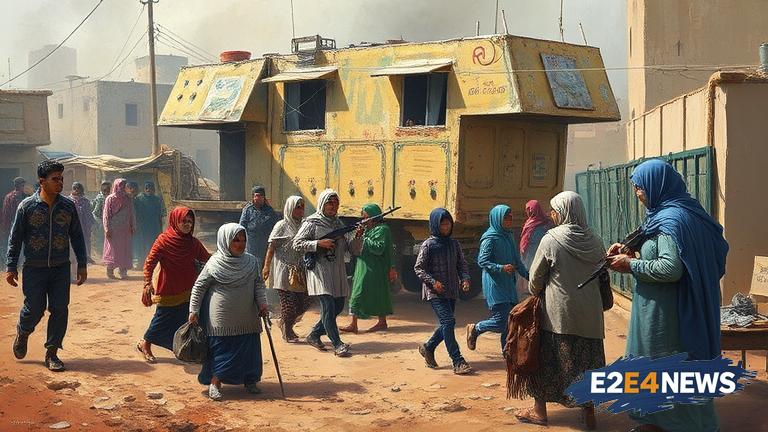The Palestinian refugee crisis has been a longstanding and complex issue, with roots dating back to the 1948 Arab-Israeli War. The conflict resulted in the displacement of hundreds of thousands of Palestinians, who were forced to flee their homes and seek refuge in neighboring countries. Today, the situation remains dire, with millions of Palestinian refugees living in precarious conditions, lacking basic rights and freedoms. The refugees face significant challenges, including poverty, unemployment, and limited access to education and healthcare. Many are forced to live in overcrowded and unsanitary conditions, with inadequate shelter and infrastructure. The psychological toll of displacement and statelessness is also significant, with many refugees experiencing trauma, anxiety, and depression. The international community has been criticized for its response to the crisis, with many arguing that more needs to be done to address the root causes of the conflict and provide meaningful support to refugees. The United Nations Relief and Works Agency for Palestine Refugees in the Near East (UNRWA) has been a vital lifeline for many refugees, providing essential services such as education, healthcare, and food assistance. However, the agency faces significant funding challenges, which have impacted its ability to deliver services. The situation has been further complicated by the COVID-19 pandemic, which has exacerbated existing vulnerabilities and created new challenges for refugees. Despite these challenges, many Palestinian refugees remain resilient and determined, with a strong sense of identity and connection to their homeland. The right of return is a central issue for many refugees, who argue that they have a legitimate claim to return to their ancestral homes. However, this issue remains highly contested, with Israel arguing that a mass return of refugees would pose a demographic threat to the Jewish state. The international community has called for a just and lasting resolution to the conflict, which would address the rights and needs of Palestinian refugees. This includes the right to return, compensation, and resettlement. However, a solution remains elusive, with ongoing violence, occupation, and settlement expansion contributing to a sense of hopelessness and despair. The situation is further complicated by the role of regional and international actors, who have competing interests and agendas. The United States, in particular, has been criticized for its approach to the conflict, which many argue has favored Israel at the expense of Palestinian rights. The European Union has also faced criticism for its response to the crisis, with many arguing that it has failed to provide sufficient support to refugees and to hold Israel accountable for its actions. As the situation continues to deteriorate, there is a growing sense of urgency and concern among the international community. Many are calling for a renewed commitment to finding a just and lasting resolution to the conflict, which would address the rights and needs of Palestinian refugees. This includes a range of measures, such as increased funding for UNRWA, support for refugee resettlement, and pressure on Israel to respect Palestinian rights. Ultimately, the fate of Palestinian refugees will depend on the ability of the international community to come together and find a solution that is just, equitable, and sustainable. The crisis is a stark reminder of the need for collective action and responsibility, and the importance of upholding human rights and dignity. As the world watches, the situation continues to unfold, with millions of Palestinian refugees waiting anxiously for a resolution to their plight. The international community must act with urgency and compassion to address this crisis, and to ensure that the rights and needs of Palestinian refugees are finally recognized and respected.
